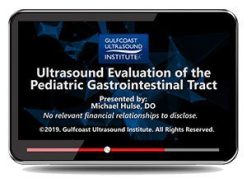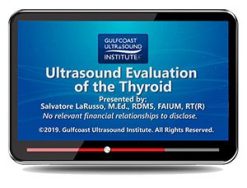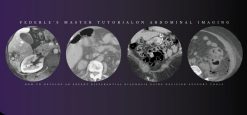-
Breast Papillary Lesions: The Good, The Bad, and The Ugly – Ashley Cimino-Mathews, MD
2023 Diagnostic Pathology Update: Pragmatic Approaches to Daily Practice USCAP
$124,00
Samples for Courses Can be found here : Free Samples Here!
Type: 36 MP4 + 36 PDF Files
File size: 88.8 GB
2023 Diagnostic Pathology Update: Pragmatic Approaches to Daily Practice Introduction to the 2023 Diagnostic Pathology Update The 2023 Diagnostic Pathology Update: Pragmatic Approaches to Daily Practice is an upcoming conference organized by the United States and Canadian Academy of Pathology . The goals of the conference are to improve diagnostic accuracy, reduce diagnostic errors, and ultimately enhance patient care. The purpose of this update is to provide practicing pathologists with the latest information and practical approaches to pathology diagnosis.
2023 Diagnostic Pathology Update: Pragmatic Approaches to Daily Practice
Introduction to the 2023 Diagnostic Pathology Update
The 2023 Diagnostic Pathology Update: Pragmatic Approaches to Daily Practice is an upcoming conference organized by the United States and Canadian Academy of Pathology . The purpose of this update is to provide practicing pathologists with the latest information and practical approaches to pathology diagnosis. The goals of the conference are to improve diagnostic accuracy, reduce diagnostic errors, and ultimately enhance patient care. The conference will cover a broad range of pathology topics, including neoplastic and non-neoplastic diseases, molecular pathology, and laboratory management .
- The update will provide an overview of current classification systems of solid neoplasms and precursor lesions, highlighting common pitfalls and approaches to resolve them . The conference will be led by expert subspecialized academic faculty, both from OSU and outside speakers, who will provide attendees with the latest information and pragmatic approaches to daily practice . The conference will be held over three days and will offer attendees the opportunity to network with colleagues and learn from experts in the field of pathology.
- The importance of pragmatic approaches to daily practice cannot be overstated. Diagnostic errors can have serious consequences for patients, including misdiagnosis, delayed treatment, and unnecessary procedures. This conference attempts to help pathologists eliminate diagnostic errors by highlighting pitfalls and providing approaches to resolve them using routine diagnostic techniques . By attending this conference, pathologists can stay up-to-date with the latest advances in pathology diagnosis and improve their ability to provide accurate and timely diagnoses, ultimately improving patient outcomes.
Updates on Diagnostic Techniques and Tools
- Advancements in imaging techniques have revolutionized the field of pathology, allowing for more accurate and efficient diagnoses. The 2023 Diagnostic Pathology Update conference provides a comprehensive review of current classification systems of solid neoplasms and precursor lesions, as well as updates on the latest imaging techniques . In particular, emerging technologies in pathology, such as digital pathology and whole slide imaging, have greatly enhanced the ability to visualize and analyze tissue samples . These advancements in imaging techniques have the potential to improve diagnostic accuracy and ultimately lead to better patient outcomes.
- Another emerging trend in pathology is the utilization of artificial intelligence in diagnosis. AI tools, such as machine learning algorithms, can analyze large amounts of data and recognize patterns that may be difficult for human pathologists to detect . This can lead to more accurate and efficient diagnoses, as well as reduced workload for pathologists . The 2024 Diagnostic Pathology Update conference will feature discussions on the latest developments in the utilization of AI in pathology . As AI technology continues to evolve, it has the potential to transform the field of pathology and improve patient care.
- The utilization of emerging technologies and AI in pathology highlights the importance of continuing education and staying up-to-date with the latest diagnostic techniques and tools. The 2023 Diagnostic Pathology Update conference is designed to provide a comprehensive and practical update on diagnostic pathology, with a focus on pragmatic approaches to daily practice . By attending conferences and participating in online courses, pathologists can stay informed about the latest advancements in the field and provide the best possible care for their patients .
Updates on Cancer Diagnosis and Management
- The 2023 Diagnostic Pathology Update conference provided updates on the latest advances in cancer diagnosis and management. Precision medicine has emerged as a promising approach to cancer treatment, allowing for tailored therapies based on individual patient characteristics . This approach involves the use of genomic testing to identify specific mutations and alterations in cancer cells, which can then be targeted with appropriate therapies . These advances in precision medicine have led to improved outcomes for patients with various types of cancer . The DPU conference emphasized the importance of staying up-to-date with these emerging approaches to cancer care .
- New biomarkers and therapeutic targets have also been identified, providing additional options for cancer diagnosis and treatment. Pathologists must be knowledgeable about these biomarkers and their relevance in diagnosing and classifying solid tumors . The DPU conference highlighted the importance of understanding these emerging biomarkers and incorporating them into daily practice. Additionally, a multidisciplinary approach to cancer care was emphasized, with the involvement of various healthcare professionals, including pathologists, oncologists, and radiologists, to ensure the best possible outcomes for patients.
- The DPU conference also provided updates on advancements in the treatment of gastrointestinal cancers, such as pancreatic, biliary, liver, and neuroendocrine tumors. These advancements include new therapeutic options and innovative approaches to treatment . Pathologists must be knowledgeable about these emerging treatments and work collaboratively with other healthcare professionals to ensure the best possible outcomes for patients . The DPU conference emphasized the importance of staying current with these advancements in cancer care and incorporating them into daily practice.
Updates on Diagnostic Techniques and Tools
- Advancements in imaging techniques have revolutionized the field of pathology, allowing for more accurate and efficient diagnoses. The 2023 Diagnostic Pathology Update conference provides a comprehensive review of current classification systems of solid neoplasms and precursor lesions, as well as updates on the latest imaging techniques . In particular, emerging technologies in pathology, such as digital pathology and whole slide imaging, have greatly enhanced the ability to visualize and analyze tissue samples . These advancements in imaging techniques have the potential to improve diagnostic accuracy and ultimately lead to better patient outcomes.
- Another emerging trend in pathology is the utilization of artificial intelligence in diagnosis. AI tools, such as machine learning algorithms, can analyze large amounts of data and recognize patterns that may be difficult for human pathologists to detect . This can lead to more accurate and efficient diagnoses, as well as reduced workload for pathologists . The 2024 Diagnostic Pathology Update conference will feature discussions on the latest developments in the utilization of AI in pathology . As AI technology continues to evolve, it has the potential to transform the field of pathology and improve patient care.
- The utilization of emerging technologies and AI in pathology highlights the importance of continuing education and staying up-to-date with the latest diagnostic techniques and tools. The 2023 Diagnostic Pathology Update conference is designed to provide a comprehensive and practical update on diagnostic pathology, with a focus on pragmatic approaches to daily practice . By attending conferences and participating in online courses, pathologists can stay informed about the latest advancements in the field and provide the best possible care for their patients .
Updates on Cancer Diagnosis and Management
- The 2023 Diagnostic Pathology Update conference provided updates on the latest advances in cancer diagnosis and management. Precision medicine has emerged as a promising approach to cancer treatment, allowing for tailored therapies based on individual patient characteristics . This approach involves the use of genomic testing to identify specific mutations and alterations in cancer cells, which can then be targeted with appropriate therapies . These advances in precision medicine have led to improved outcomes for patients with various types of cancer . The DPU conference emphasized the importance of staying up-to-date with these emerging approaches to cancer care .
- New biomarkers and therapeutic targets have also been identified, providing additional options for cancer diagnosis and treatment. Pathologists must be knowledgeable about these biomarkers and their relevance in diagnosing and classifying solid tumors . The DPU conference highlighted the importance of understanding these emerging biomarkers and incorporating them into daily practice. Additionally, a multidisciplinary approach to cancer care was emphasized, with the involvement of various healthcare professionals, including pathologists, oncologists, and radiologists, to ensure the best possible outcomes for patients.
- The DPU conference also provided updates on advancements in the treatment of gastrointestinal cancers, such as pancreatic, biliary, liver, and neuroendocrine tumors. These advancements include new therapeutic options and innovative approaches to treatment . Pathologists must be knowledgeable about these emerging treatments and work collaboratively with other healthcare professionals to ensure the best possible outcomes for patients . The DPU conference emphasized the importance of staying current with these advancements in cancer care and incorporating them into daily practice.
Updates on Infectious Disease Diagnosis and Management
- Infectious diseases continue to be a significant challenge in the field of pathology, with new emerging diseases constantly being discovered. The 2023 Diagnostic Pathology Update will provide updates on the latest emerging infectious diseases and their diagnosis and management. This course, organized by the United States and Canadian Academy of Pathology , will feature expert subspecialized academic faculty who will provide pragmatic approaches to daily practice in infectious disease diagnosis and management .
- The DPU will also cover new diagnostic tests and approaches for infectious diseases. With the constant evolution of diagnostic technology, it is crucial for pathologists to stay up-to-date on the latest diagnostic tests and approaches in order to provide accurate and timely diagnoses. The course will provide an overview of the latest advances in diagnostic tests and approaches for infectious diseases, including molecular and serological techniques .
- Antimicrobial resistance is a growing concern in the medical community, and the DPU will focus on antimicrobial stewardship and resistance. The course will feature a panel discussion on leveraging healthcare partnerships to accelerate the impact of diagnostics on antimicrobial stewardship and resistance . Additionally, the course will provide updates on the latest approaches to antimicrobial stewardship, including the appropriate use of antibiotics and the prevention of antibiotic resistance . By staying up-to-date on the latest approaches to infectious disease diagnosis and management, pathologists can play a critical role in improving patient outcomes and reducing the spread of infectious diseases.
Updates on Quality Assurance and Patient Safety
- Quality assurance is a crucial aspect of pathology, and it plays a significant role in ensuring accurate diagnoses and patient safety. The 2023 Diagnostic Pathology Update provides pragmatic approaches to daily pathology practice, including updates on quality assurance . This course aims to help pathologists eliminate diagnostic errors by highlighting potential pitfalls and providing approaches to resolve them using routine practices . By implementing quality assurance measures, pathologists can improve the accuracy of their diagnoses and ensure that patients receive the appropriate treatment.
- Ensuring patient safety is also a critical component of daily pathology practice. Pathologists must be aware of potential risks and take proactive measures to minimize them. The 2023 DPU provides strategies for ensuring patient safety, including the role of pathologists in patient care and outcomes . Pathologists play a vital role in patient care, from providing accurate diagnoses to monitoring treatment efficacy. By working closely with other healthcare professionals, pathologists can ensure that patients receive the best possible care and outcomes.
- The 2023 DPU offers a unique opportunity for pathologists to stay up-to-date on the latest developments in quality assurance and patient safety. By attending this course, pathologists can adapt new information to practice changes that improve and optimize patient care and outcomes . The course combines expert subspecialized academic faculty with a focus on pragmatic approaches to daily pathology practice . Pathologists can benefit from this course by gaining knowledge and skills that can be applied in their daily practice, ultimately leading to improved patient care and outcomes.
PROGRAM
-
Breast Spindle Cell Lesions – Ashley Cimino-Mathews, MD
-
Immune Biomarkers in Breast Cancer – Ashley Cimino-Mathews, MD
-
Small Glandular Proliferations of the Breast (ARS) – Ashley Cimino-Mathews, MD
-
Special Type Breast Carcinomas (ARS) – Ashley Cimino-Mathews, MD
-
Beyond Dermatofibroma: What’s New in Cutaneous Mesenchymal Tumors? – Jason L. Hornick, MD, PhD
-
Classification of Pleomorphic Sarcomas is Important and Easy (I Promise!) – Jason L. Hornick, MD, PhD
-
Gastrointestinal Mesenchymal Tumors: Avoid Going Down the Tube(s)! (ARS) – Jason L. Hornick, MD, PhD
-
Classification of Endometrial Carcinoma: Integration of Morphologic, Immunophenotypic, and Molecular Data – Brooke Howitt, MD
-
INI1-deficient Vulvar Tumors (ARS) – Brooke Howitt, MD
-
Mesonephric-like Carcinoma (ARS) – Brooke Howitt, MD
-
Updates in Uterine Mesenchymal Neoplasms: New Entities, New Tools (New Headaches?) – Brooke Howitt, MD
-
Vulvar Squamous Lesions and Cancers: Updates in Classification and Staging – Brooke Howitt, MD
-
“Flat” and “Deceptively Bland” Urothelial Lesions: Nothing to be Trifled With! – Cristina Magi-Galluzzi, MD, PhD
-
Prostate Biopsy Interpretation: The Obvious and Not So – Cristina Magi-Galluzzi, MD, PhD
-
Things That Matter Are Not Easy: Pitfalls in GU Pathology (ARS) – Cristina Magi-Galluzzi, MD, PhD
-
“It’s a What?” Memorable Thoracic Frozen Sections (ARS) – Sanjay Mukhopadhyay, MD
-
Small Cell, Large Cell: Crash Course in Neuroendocrine Lung Neoplasms – Sanjay Mukhopadhyay, MD
-
The Mighty Eosinophil: What to Consider When You See Eosinophils in the Lung (ARS) – Sanjay Mukhopadhyay, MD
-
Thoracic Tumor Toolkit: 10 Must-know Tumors in Thoracic Pathology – Sanjay Mukhopadhyay, MD
-
What You Inhale Can Kill You: Lung Pathology of Smoking and Vaping – Sanjay Mukhopadhyay, MD
-
Biopsy Interpretation of Inflammatory Diseases of the Colon – Rish K. Pai, MD
-
Demystifying Appendiceal Tumors: Information our Clinicians Need to Know – Rish K. Pai, MD
-
Inflammatory Bowel Disease Associated Neoplasia (ARS) – Rish K. Pai, MD
-
Usual and Unusual Colorectal Polyps (ARS) – Rish K. Pai, MD
-
What’s New in Colorectal Cancer? – Rish K. Pai, MD
-
Lessons From Two Competing Classifications: Lymphoid Neoplasms (ARS) – Olga Weinberg, MD
-
Lessons From Two Competing Classifications: Myeloid Neoplasms – Olga Weinberg, MD
-
Plasma Cell Neoplasms (ARS) – Olga Weinberg, MD
-
Practical Approach to Cutaneous Lymphomas – Olga Weinberg, MD
-
The Controversies in Lymphoma Classification – Olga Weinberg, MD
-
Mucosal Squamous Proliferations: Bread and Butter – Ilan Weinreb, MD
-
New Salivary Kids on the Block (ARS) – Ilan Weinreb, MD
-
Salivary Gland Cancers: An Array of Pink, Clear and Blue and Molecular Too! – Ilan Weinreb, MD
-
Sinonasal Basaloid and Round Cell Neoplasms: What’s Old is New Again – Ilan Weinreb, MD
-
IN HEAD; A Tumor Acronym for Those in the Nose Bleed Section (ARS) – Ilan Weinreb, MD
Related products
PULMONARY /RESPIRATORY












Reviews
There are no reviews yet.